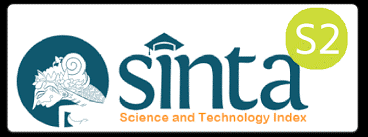Spiritual Emotional Freedom Technique (SEFT) Analysis of the Anxiety Levels of Primigravida Pregnant Women in the Third Trimester
DOI:
https://doi.org/10.35730/jk.v15i2.1111Keywords:
Spiritual Emotional Freedom Technique(SEFT), Anxiety2, Primigravida pregnant women TM III3,Abstract
Background:When facing childbirth, anxiety about giving birth often occurs. Anxiety that is not resolved properly causes changes in the function of the autonomic nervous system/ANS, worsens cardiovascular adaptation and risks complications in pregnant women.
Purpose:This research aims to identifySpiritual Emotional Freedom Technique(SEFT) Regarding the Anxiety Level of Primigravid Pregnant Women in the Third Trimester.
Methods:Qualitative study with a case study approach. The informants in this study consisted of 10 primigravida pregnant women who were recruited through purposive sampling. Data collection through in-depth interviews using data collection instruments, in-depth interview guides, field notes, audio recorder. By analyzing data using Collezi thematic analysis.
Results:The results of the qualitative analysis showed that two major themes were studiedSpiritual Emotional Freedom Technique(SEFT) Regarding the Anxiety Level of Primigravida Pregnant Women in the Third Trimester, namely; 1) Spiritual Emotional Freedom Technique (SEFT) process, 2) Spiritual Emotional Freedom Technique (SEFT) results.
Conclusion:Spiritual Emotional Freedom Technique(SEFT) is good for women who are undergoing pregnancy to reduce feelings of anxiety and worry, especially the worries experienced by pregnant women in the third trimester, the feelings of anxiety and worry are increasing. Pregnant women feel the benefits of SEFT. They feel the effectiveness of SEFT and can continue to practice SEFT in a sustainable manner.
References
K. Yoyok. Nuraini, Wahyuni Sri, Windiana Tri, Oktavia Evi,Indonesian Population Profile 2015 SUPAS Results. Central Statistics Agency, 2015.
W. Grahamet al., “Diversity and divergence: the dynamic burden of poor maternal health,” The Lancet, vol. 388, no. 10056, p. 2164–2175, 2016, doi: 10.1016/S0140-6736(16)31533-1.
A. Biaggi, S. Conroy, S. Pawlby, and CM Pariante, “Identifying the women at risk of antenatal anxiety and depression: A systematic review,”Journal of Affective Disorders, vol. 191, no. 2016, p. 62–77, 2016, doi: 10.1016/j.jad.2015.11.014.
SSHH Nicholas,Childbirth Education practice, Research and Theory,Second. Philadelphia London: WB Sounders Company, 2000.
NM kes Heryanti, M.kes & Faizah, "Faal Psychology Lecture Diktat,"Physiological Psychology, p. 1–62, 2008.
C. Qiu, MA Williams, R. Calderon-Margalit, SM Cripe, and TK Sorensen, "Preeclampsia risk in relation to maternal mood and anxiety disorders diagnosed before or during early pregnancy,"American Journal of Hypertension, vol. 22, no. 4, p. 397–402, 2009, doi: 10.1038/ajh.2008.366.
JF Thayer, SS Yamamoto, and JF Brosschot, "The relationship of autonomic imbalance, heart rate variability and cardiovascular disease risk factors,"International Journal of Cardiology, vol. 141, no. 2, p. 122–131, 2010, doi: 10.1016/j.ijcard.2009.09.543.
MAKA Braeken, A. Jones, RA Otte, I. Nyklí?ek, and BRH Van den Bergh, “Potential benefits of mindfulness during pregnancy on maternal autonomic nervous system function and infant development,”Psychophysiology, vol. 54, no. 2, p. 279–288, 2017, doi: 10.1111/psyp.12782.
H. Chatwin, P. Stapleton, B. Porter, S. Devine, and T. Sheldon, “The Effectiveness of Cognitive Behavioral Therapy and Emotional Freedom Techniques in Reducing Depression and Anxiety Among Adults: A Pilot Study.”Integrative medicine (Encinitas, Calif.), vol. 15, no. 2, p. 27–34, 2016.
AF Zaenudin,Spiritual Emotional Freedom Technoque (SEFT) For Healing. Jakarta Indonesia: Afzan Publishing, 2006.
Ministry of Health, "Socialization of the 2020 Revised KIA BOOK," 2020.
KK Director, J. Bina, K. Community, K. Health, and RN Catalog, "Integrated Antenatal Care Guidelines,"Integrated Antenatal Care Guidelines, 2010.
Utarini Adi,Qualitative Research in Health Services. Yogyakarta: Gadjah Mada University Press, 2020.
MB Sullivanet al., “Yoga Therapy and Polyvagal Theory : The Convergence of Traditional Wisdom and Contemporary Neuroscience for Self-Regulation and Resilience,” vol. 12, no. February, p. 1–15, 2018, doi: 10.3389/fnhum.2018.00067.
M. Mardjan, YS Prabandari, M. Hakimi, and CR Marchira, "Emotional Freedom Techniques for Reducing Anxiety and Cortisol Levels in Primiparous Pregnant Adolescents,"Unnes Journal of Public Health, vol. 7, no. 1, p. 1–6, 2018, doi: 10.15294/ujph.v7i1.19212.
P. Irmak Vural and E. Aslan, "Emotional freedom techniques and breathing awareness to reduce childbirth fear: A randomized controlled study,"Complementary Therapies in Clinical Practice, vol. 35, no. February 2019, p. 224–231, 2019, doi: 10.1016/j.ctcp.2019.02.011.
M. Astriani, "Utilization of Emotional Freedom Techniques (EFT) on Anxiety Levels in Primigravida Pregnant Women,"International Journal of Science and Research (IJSR), vol. 7, no. 9, p. 393–396, 2018, doi: 10.21275/ART20191124.
E. Aslami, A. Alipour, FS Najib, and A. Aghayosefi, "A Comparative study of mindfulness efficiency based on Islamic-spiritual schemes and group cognitive behavioral therapy,"International journal of community based nursing and midwifery, vol. 5, no. 2, p. 144–152, 2017.
T. Dansie and T. Dansie, “Counselling for anxiety,”Basic Counseling Skills for Teachers. p. 86–93, 2019. doi: 10.4324/9780203728895-12.
A. Sartika and IN Kurniawan, "Tawakal To Allah Scale: Development of Psychological Measures of Surrender To God in an Islamic Perspective,"Psychology: Journal of Psychological Thought and Research, vol. 20, no. 2. 2015. doi: 10.20885/psychologika.vol20.iss2.art3.
Yuniarti, "4th Asian Academic Society International Conference (AASIC) 2016 HEA-OR-115 4th Asian Academic Society International Conference (AASIC) 2016 Measurement of cortisol levels," p. 381–388, 2016.
K. Kusnanto, J. Haryanto, T. Sukartini, E. Ulfiana, and MM Putra, "The Effectiveness of Spiritual Emotional Breathing Towards Respiratory Function and Immune Response of Tuberculosis Patients,"Nurses Journal, vol. 13, no. 1, p. 93, 2018, doi: 10.20473/jn.v13i1.8373.
M. Haghighat, M. Mirghafourvand, S. Mohammad-Alizadeh-Charandabi, J. Malakouti, and M. Erfani, "The effect of spiritual counseling on stress and anxiety in pregnancy: A randomized controlled clinical trial,"Iranian Red Crescent Medical Journal, vol. 20, no. 4, 2018, doi: 10.5812/ircmj.64094.
I. Permana, P. Ormandy, and A. Ahmed, “Maintaining Harmony: How Religion and Culture are Interwoven in Managing Daily Diabetes Self-Care,”Journal of Religion and Health, vol. 58, no. 4, p. 1415–1428, 2019, doi: 10.1007/s10943-019-00819-5.




